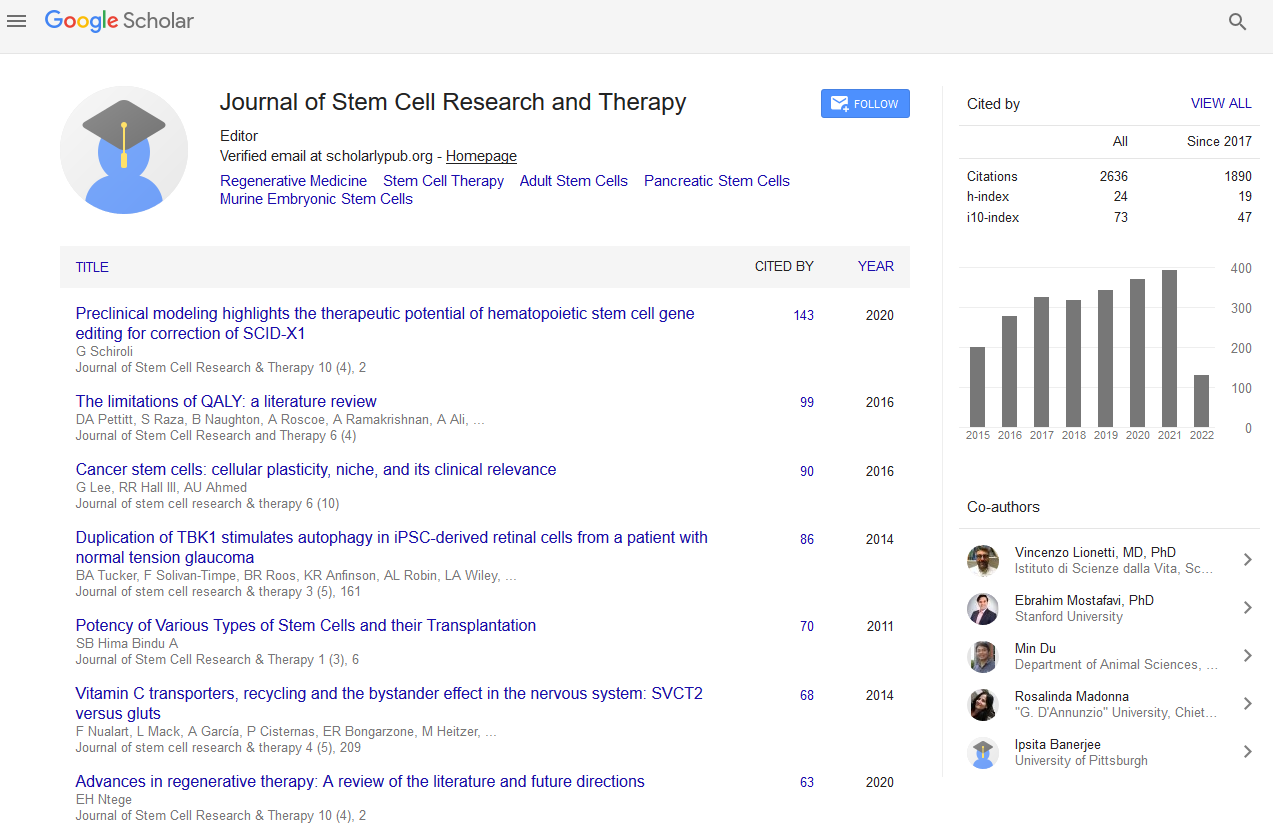Indexed In
- Open J Gate
- Genamics JournalSeek
- Academic Keys
- JournalTOCs
- China National Knowledge Infrastructure (CNKI)
- Ulrich's Periodicals Directory
- RefSeek
- Hamdard University
- EBSCO A-Z
- Directory of Abstract Indexing for Journals
- OCLC- WorldCat
- Publons
- Geneva Foundation for Medical Education and Research
- Euro Pub
- Google Scholar
Useful Links
Share This Page
Journal Flyer

Open Access Journals
- Agri and Aquaculture
- Biochemistry
- Bioinformatics & Systems Biology
- Business & Management
- Chemistry
- Clinical Sciences
- Engineering
- Food & Nutrition
- General Science
- Genetics & Molecular Biology
- Immunology & Microbiology
- Medical Sciences
- Neuroscience & Psychology
- Nursing & Health Care
- Pharmaceutical Sciences
Functional and mechanistic analysis of long non-coding RNAs in lung cancer
Annual Summit on Cell Signaling, Cell Therapy and Cancer Therapeutics
September 27-28, 2017 Chicago, USA
Guoan Chen
University of Michigan Health System, USA
Scientific Tracks Abstracts: J Stem Cell Res Ther
Abstract:
Lung cancer is a molecularly-heterogenous disease and the leading cause of cancer mortality. The molecular basis for this clinical heterogeneity remains incompletely understood. Increasing appreciation of the role of long non-coding RNAs (lncRNAs) in cancer progression has led to the identification of these molecules as a largely uncharacterized aspect of disease biology and novel prognostic/diagnostic biomarkers. We recently generated transcriptome data using next-generation RNA sequencing (RNA-Seq) to reveal lncRNA expression patterns in lung cancer. Preliminary studies have identified several novel lncRNAs which were dysregulated in lung cancer. LINC00857, as one of the top dysregulated lncRNAs, was highly expressed in lung cancer and significantly related to poor survival in patients with lung adenocarcinomas. This was verified by several lung data sets and confirmed by RT-PCR in an independent data set. Functional studies of in vitro and in vivo models indicated that LINC00857 plays an important role in lung cancer proliferation, invasion and cell cycle regulation. Mechanistic studies indicated that LINC00857 mediated tumor growth potentially through regulation of autophagy via YBX1-MET/AMPKa axis in lung cancer cell lines. The study provided a comprehensive analysis of lncRNAs in lung adenocarcinomas. It established the role of LINC00857 as a potential driver of lung cancer pathogenesis and a potentially as a new diagnostic/prognostic biomarker. Importantly this study may help identify new molecular targets or a predictive marker for lung cancer treatment in tumors with TP53, KRAS or EGFR mutations, as well as ALK fusion.
Biography :
Guoan Chen is a Research Assistant Professor in the Section of Thoracic Surgery at the University of Michigan Medical School. He completed his PhD from Peking Union Medical College in 1999 and Post-doctoral training in tumor molecular biology at the University of Michigan in 2003. He has over 15 years of research experience in identification and characterization of molecular genetic alterations including protein profiles, autoantibody profiles, gene mutations, DNA copy number changes by SNP, DNA methylation, gene signatures by mRNAs, microRNA profiles, circRNAs and long non-coding RNAs in lung cancer using functional genomic, proteomics and bioinformatics approaches with more than 80 papers in reputed journals.


